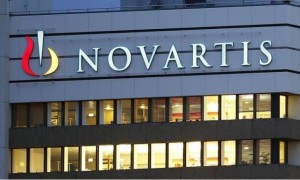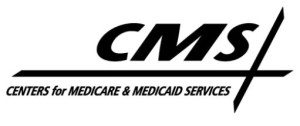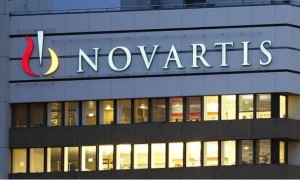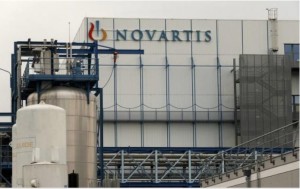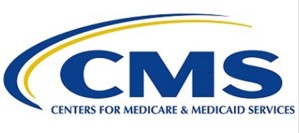- Brand matters: Interbrand’s best in pharma ranks Pfizer, Roche and Merck at top (fiercepharmamarketing.com)
Global brand consultant Interbrand, author of the annual Best Global Brands list, has turned its attention to pharma. InterbrandHealth looked specifically at the pharma category and sifted through 25 companies to get the "Best Pharma Brands," a baseline top 10 in the industry.
- Pfizer - ranked highest at almost $20 billion ($19.99 billion) in brand value
- Roche Group - at $15.47 billion
- Merck & Co. - at $13.88 billion
- Janssen at $13.87 billion
- Novartis at $13.5 billion
- Amgen at $13.46 billion
- Gilead Sciences at $13.36 billion
- Novo Nordisk at $10.21 billion
- AstraZeneca at $8.12 billion
- GlaxoSmithKline at $6.78 billion
Interbrand looked at three factors in determining the dollar figure for the brands: financial analysis, brand strength and role of brand. The third factor measures brand influence and how likely customers are to recommend it--in this case, how likely are doctors and healthcare providers to recommend or prescribe the brand's drugs.
- Novartis and the feds squabble over 80,000 ‘sham’ speaking events (statnews.com)
Novartis and the Department of Justice are squabbling over documents that allegedly contain details of nearly 80,000 "sham" events that the drug maker used to encourage doctors to prescribe several blood pressure medicines...The tussle comes as part of a run-up to a planned trial this summer in which the feds plan to argue that Novartis violated federal antikickback laws...the drug maker has maintained the government is unfairly expanding the scope of its inquiry...The trial is an outgrowth of a whistleblower lawsuit filed five years ago by Oswald Bilotta, a former Novartis sales rep, and was joined by the Justice Department in 2013...the feds wrote that "this case implicates issues of enormous public concern: whether Novartis defrauded federal health care programs of hundreds of millions of dollars by systematically providing inducements to doctors across the country...in an effort to influence the drugs they prescribed to patients in their care."...
- Surprise proposal: Medicare wants to jump on the value-based pricing bandwagon (fiercepharma.com)
Doctors and cancer clinics are up in arms about a new Medicare reimbursement scheme that would cut their mark-ups on oncology drugs. But the Centers for Medicare and Medicaid Services has even bigger plans for cancer-drug payments...Pay-for-performance deals and indication-specific reimbursements are on a list of 6 programs CMS plans to try alongside the cuts targeted at physicians and hospitals. It's a rare example of Medicare plucking new ideas from the private sector, even before they've been widely adopted in the biopharma industry...CMS says it looked to private payers for "value-based purchasing tools," and wants to use strategies similar to those used by commercial health plans, pharmacy benefits managers, hospitals and other benefits managers...the agency would experiment with the sort of value-based reimbursement plans that Novartis and Amgen are using on their brand-new heart drugs Entresto and Repatha. CMS says it will be seeking "risk-sharing" deals with drugmakers to link drug payments with patient outcomes...In practice, performance-based deals can be difficult to administer, and that's one reason why U.S. payers have been reluctant to make pay-for-performance arrangements on Entresto...A U.K. government report found that the National Health Service had fallen short on clawing back rebates owed under its cost-sharing deals with drugmakers.
- US insurers dragging feet on covering new drugs, Novartis says (reuters.com)
Getting U.S. government and commercial insurers to cover new medicines can now take longer than in Europe, Swiss drugmaker Novartis said on Wednesday, blaming U.S. delays for weaker than expected sales of a key heart failure treatment...Novartis said poor sales of one of those new drugs, its heart failure treatment Entresto - just $5 million for the fourth quarter, well off expectations of analysts as well as the company - resulted from delays in making new medicines available to insured patients...European insurers and governments were now faster to reimburse for medicines such as Entresto and Novartis's new psoriasis and arthritis drug Cosentyx than those across the Atlantic...They (in the U.S.) have really developed their tools extensively around introduction of new drugs, which creates a period of time where access is difficult...And that period of time is now longer than it is in Europe...
- Drug makers paid fewer fines for bad behavior in recent years (statnews.com)
After a decade in which drug makers regularly paid huge fines for various fraudulent practices, there was a noticeable drop over the past two years, according to a new analysis by Public Citizen...Pharmaceutical companies paid approximately $2.8 billion to settle federal and state civil and criminal charges in 2014 and 2015, compared with $9.9 billion during 2012 and 2013. The most recent payments also amounted to the lowest two-year total since 2004 and 2005...Among the worst offenders in recent years were Johnson & Johnson, Pfizer, Novartis, and GlaxoSmithKline, although the report noted that nearly every large drug maker has paid fines to resolve some kind of infraction over the past two decades...A spokesman for the Pharmaceutical Research and Manufacturers of America...We are disappointed at the report’s misleading conclusions...Among its many methodological flaws, the report aggregates all settlements involving the pharmaceutical industry, with little regard as to whether the companies actually broke the law. Civil settlements rarely resolve the question of guilt. Yet the report glosses over its own finding that 88 percent of the settlements reported were civil, not criminal...
- Novartis agrees to $25m settlement over bribery charges in China (statnews.com)
Novartis...agreed to pay $25 million to settle charges that it violated the Foreign Corrupt Practices Act by making illegal payments to health care providers in China. In doing so, the company becomes the latest drug maker to get punished for paying bribes in order to boost sales in a foreign country...The settlement also comes just one month after South Korean authorities raided Novartis offices in search of evidence the company bribed local doctors...In China, Novartis employees at two different Chinese subsidiaries gave money, gifts, vacations, and entertainment, among other things, to health care professionals between 2009 and 2011, according to an administrative order filed by the US Securities and Exchange Commission...At the same time, the SEC said that Novartis failed to devise and maintain a sufficient system of internal accounting controls and lacked an effective anticorruption compliance program to detect and prevent these schemes. As a result, the improper payments were not accurately reflected in Novartis’s books and records...Novartis spokesman...the issues raised by the SEC largely pre-date many of the compliance-related measures introduced by Novartis across its global organization in recent years. We believe these measures...address the issues raised by the SEC and reflect a broader initiative by Novartis to align and enhance our compliance standards globally...
- Those PBM moves pharma loves to hate? They work, CVS says–so get used to them (fiercepharma.com)
Drugmakers may not be too keen on the formulary management techniques and exclusive deals pharmacy benefits managers have been using to combat rising drug prices. But new numbers from a PBM giant suggest they work--and that pharma better get used to them...CVS Health announced that its prescription drug trend--a metric for growth in prescription spending--had dropped to 5% in 2015, down from an all-time high of 11.8% in 2014. And with many of the usual drivers staying consistent over both periods--including brands and price inflation among generic and specialty drugs—the company is chalking up the drop as proof its tactics are doing their job...CVS' "proactive pharmacy management strategies were successful in mitigating the impact of rising drug costs in today's highly volatile prescription drug market,"..."[W]e work to help patients avoid unnecessarily expensive medications as part of our focus on making prescriptions affordable."..CVS and its main rival, Express Scripts, have both been actively pruning their preferred formularies over the past few years…Unsurprisingly, pharma hasn't taken too kindly to the moves, but some companies have been more accepting of the current climate than others...GlaxoSmithKline and Novartis, to name a couple, have been working to avoid payers' wrath...
- Novartis is accused of paying bribes in Turkey to boost prescriptions (statnews.com)Turkish prosecutor opens bribery probe into drugmaker Novartis (reuters.com)
An anonymous whistleblower has accused Novartis of paying bribes in Turkey by using a consulting firm to boost the use of its medicines...The alleged bribes reportedly resulted in $85 million in benefits to Novartis...The firm aided the drug maker by getting medicines added to formularies, or list of medicines that were approved for use in government-run hospitals...The consulting firm also helped Novartis avoid price cuts in other countries by winning government approval to change the names of two medicines...The Alp Aydin Consultancy was paid the equivalent of $290,000 plus costs in 2013 and 2014, but the relationship ended after the Turkish Social Security Institution began an investigation...A Novartis spokesman confirmed that an internal investigation is under way...We take any allegation of inappropriate behavior extremely seriously and investigate all allegations thoroughly...Over the past few years, a growing number of companies have been enmeshed in bribery scandals, some of which have resulted in large fines...Whether US authorities will investigate remains unclear...the allegations, which could not be independently confirmed, would also be passed along to the DOJ and the Securities and Exchange Commission...
- How Medicare Part B ‘Value-Based Pricing’ Would Work (realclearhealth.com)Obama proposal to revamp Medicare Part B faces more opposition (statnews.com)
...Centers for Medicare & Medicaid Services spends $20 billion a year for drugs under Part B, which are those given in doctors’ offices and hospital outpatient centers. Many cancer treatments are provided that way, as are some treatments for rheumatoid arthritis, macular degeneration...Under a proposed rule, different methods would be tried in selected geographic areas over a five-year test period. Some of these experiments would begin this year, with others added in 2017...Dubbed "value-based pricing," such largely unproven ideas are the latest tactics being tried to slow growth in prescription drug spending amid rising public alarm about drug prices...The goal is to test whether alternative approaches will lead to better value...There is no perfect payment system, they all have upsides and downsides...What we don’t want to do is create a world where doctors only prescribe the cheapest stuff even if not in the interest of the patient...Here are four concepts the government is investigating:
- Cut drug reimbursements for doctors and outpatient hospital centers.
- Level payments.
- Tie payments to effectiveness.
- Cut patients’ out-of-pocket costs.
- Insurers, drugmakers wrestle with how to build value-based contracts (modernhealthcare.com)
...outcry over drug pricing has forced healthinsurers and pharmaceutical companies to devise ways of expanding access to potentially life-saving drugs without breaking the bank...Value-basedcontracts, in which insurers pay for drugs based on their effectiveness, have begun to sprout, and more are expected to follow. But experts believe these types of deals, although potentially beneficial, are not a panacea for managing drug costs. Value-based contracts may also be hard to orchestrate since they require doctors, insurers, pharmacy benefit managers and drug companies, often rivals, to cooperate and share data...What you still don't know at the end of the day with these outcomes agreements is whether they save money…Paying for the efficacy of drugs is a logical extension of how the U.S. wants to finance healthcare. Medicare rewards hospitals that deliver good care and penalizes those with high levels of costly readmissions. Private insurers have created narrow networks with selected health systems and doctors presumably based on their low costs and superior quality...most difficult hurdle may come once insurers, PBMs and drug companies have agreed on measurable, clinically relevant metrics. Those groups then have to share their medical and pharmacy data to track outcomes, which requires a high level of cooperation from fierce, often unfriendly negotiators...


